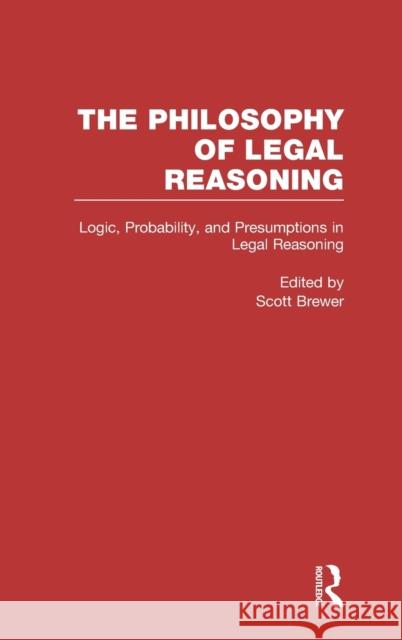Logic, Probability, and Presumptions in Legal Reasoning » książka
Logic, Probability, and Presumptions in Legal Reasoning
ISBN-13: 9780815326557 / Angielski / Twarda / 1998 / 414 str.
Illuminates legal reasoning -- and its justificationAt least since plato and Aristotle, thinkers have pondered the relationship between philosophical arguments and the "sophistical" arguments offered by the Sophists -- who were the first professional lawyers. Judges wield substantial political power, and the justifications they offer for their decisions are a vital means by which citizens can assess the legitimacy of how that power is exercised. However, to evaluate judicial justifications requires close attention to the method of reasoning behind decisions. This new collection illuminates and explains the political and moral importance in justifying the exercise of judicial power.Explores enduring questionsFocusing on work over the past century, the essays address important recurring questions, such as: When a judge or a lawyer reasons to a conclusion about what is legally required in a given case, must he also ask what is morally required? To what extent do a judge's personal, political, or moral biases affect his legal reasoning? What is the impact of such biases? Can all such biases be avoided? Is legal reasoning similar to reasoning in mathematics, logic, and linguistics, the physical sciences, the social sciences, or literature and history? Do formal logical modes of argument play any roles in legal reasoning?Solid coverage, well organizedThe articles were chosen to present some of the most influential works on the topic, as well as less familiar works that are thought provoking and informative. Each volume also offers a representative range of theoretical approaches to its topic, contains an introduction that locates the subject within the larger framework oftheories of legal reasoning and jurisprudence, and includes bibliographical notes on further readings.Many 19th century legal theorists argued that deduction is the central mode of legal reasoning, and that legal argument is like a deductive proof in mathematics or logic. They were attracted to this "deductivist" concept because it suggested that legal reasoning could be politically and morally neutral. This volume brings together some of the most thought-provoking articles on both sides of the debate. It also contains several leading articles that explain the role of probabilistic judgments and presumptions in various types of legal arguments, including the laws of evidence and criminal procedure. The collection is a solid introduction to the basic modes of logical argument in legal reasoning.











